Your cart is currently empty!
What do we mean by the Spleen: According to Traditional Chinese Medicine theory, the energetic organ system responsible for what we in modern times call “digestion” is the Spleen. This is not to be confused with the Western medical definition of the spleen as the organ that, among other things, makes antibodies, removes old red blood cells & breaks down waste products, recycles iron for use in new red blood cells, etc…).
Transport & Transformation (T & T) Function of the Spleen: How the Spleen makes qi for the body: The Spleen is one of the two central organs systems involved in the turning food into qi that is usable by the body, the other being the Stomach (which “ripens and rots” the food in preparation for the Spleen’s transformational magic). The Spleen extracts the vital essences from food and transforms them into “food qi”. This “food qi” is then transported up to the Lung where it combines with air to form what is called “gathering qi”. This “gathering qi” then undergoes further refinement to become “true qi”. This “true qi” is what flows through the channels of the body, nourishes our organs, and protects the body from invasion by wind-pathogens that can cause colds, flu, and other sicknesses.
Spleen qi, then, is “True qi” that has cycled all the way through the body and come back to the Spleen to drive its T & T function (the process of turning food into vital essence/true qi described above)… so we can see that this all works in a kind of feedback loop: we eat food and breathe air; the food is ripened in the Stomach, its vital essences are extracted by the Spleen and then combined with air from the Lungs to eventually make the qi that goes back to the Spleen to repeat the process for as long as we are alive.
It follows directly from this that food choices matter—because the quality of the food you eat (now) ultimately determines the amount of energy you have to process the food you eat (later)… and that can either be a positive of negative feedback loop. TCM formulas that tonify Spleen qi when it is deficient do work well, but diet comes first, then the herbs… herbs won’t really do much without a halfway decent diet.
Another thing to note: This process sounds a lot like digestion, and in the sense that the Spleen extracts life energy from food, it is. But it is helpful to remember that TCM is not “thinking” in terms of nutrients (e.g. how much vitamin A is extracted from a carrot and is that enough to meet the recommended standards) but rather in terms of overall quality of food going in and how it is processed/turned into qi that is usable by the body. The implication here is any improvement in food choices will improve the quality of Spleen qi and by extension, overall health—you don’t have to have the perfect diet regimen, or the perfect supplement regimen to make positive things happen for your gut health. If you start small with the changes you make in our food choices, you have a better chance to maintain those changes over time. More targeted approaches involving targeted nutritional goals and specific foods & supplements can come later.
Functions of Spleen qi
The Spleen has additional functions beyond T & T. Here are some of the biggies:
- T & T function: as described above– sufficient Spleen qi is necessary to extract nutrients and vital energy from food to manufacture (true) qi and blood for the entire body.
- Holding things in place: so, for example, deficient Spleen qi can lead to a porous, leaky gut lining, for example.
- Governing thought: Deficient Spleen qi is said to be related to excessive worrying/overthinking. This is another feedback loop: too much worry and overthinking can damage Spleen qi, and deficient Spleen qi can lead to too much worry and overthinking!
- Integral to healthy immune system functioning: Spleen qi is related to the proper functioning of defensive qi (or “wei qi”), which circulates near the skin and keeps the “pernicious influences”—wind, cold, damp, heat, & summer heat—from invading the body and sinking down into deep into the body to cause illness.
- governs the movement of blood by keeping it flowing in its proper pathways in the blood vessels; so, for example, people with deficient Spleen qi might bruise easily, get nosebleeds easily, etc…
What exactly is Spleen Qi deficiency and what are its causes: Spleen qi deficiency is a TCM diagnosis used to describe cases when there is not enough qi to properly power the necessary T & T (and other) functions for the body…
Causes of Spleen qi deficiency include:
- Poor diet over time: This is a big one. Getting into a detailed discussion of proper diet is beyond the scope of this article, but generally speaking it is balanced among different types of foods; it comprises primarily fresh, cooked foods, and it stays away from too much processed foods (what I like to call “food chemistry”)… which leads us to…
- Western diet/processed food: Western diet refers to processed foods and foods that contain high amounts of sugar, salt, rancid & bleached oils, and chemicals that can damage the gut lining (making it more porous). This type of diet also makes it difficult for the gut biome to flourish and for the Spleen to properly perform its T & T function.
- Overconsumption of raw foods: Raw foods are energetically cold and require more Spleen qi to extract their vital energy and nutrients. Raw food diets can easily lead to Spleen qi deficiency
- Cold drinks: Likewise, it takes energy to heat a fluid from refrigerator temperature to body temperature. One cold drink after cutting the lawn won’t have a deleterious effect on Spleen qi, but a greasy meal at a restaurant washed down with a couple of iced sodas might give you heartburn that night. Excessive juicing is another way that Spleen qi can be damaged over time.
- Protein-deficient diet: Sufficient and varied sources of protein are necessary to keep the gut lining healthy.
- Prolonged use of antibiotics (recent or childhood) has effects on the gut biome which translate into effects on the quality and quantity of Spleen qi available for T & T.
- Emotional strain—excessive worrying/overthinking: In Chinese Medicine theory, the mind and the body are not separated the way they are in Western Medicine theory. Excessive worry and anxiety from overthinking have an effect on Spleen qi. To relate to this, think about how your guts get riled up if you are in a seriously stressful job, or are quarreling with a family member or significant other—about how eventually you can lose appetite, get heartburn, and get loose stools just from stress. This isn’t all because of deficient Spleen qi, but it’s a part of those symptoms.
What are the symptoms of Spleen qi deficiency?
- Poor appetite: Undigested or incompletely digested food sits in the stomach and causes appetite to decrease.
- Fatigue, lethargy, chronic tiredness, and/or poor sleep: this symptom will manifest slightly differently for everyone, but the upshot is this—basically there is not energy to keep things running normally and you can feel it!
- Abdominal bloating and/or epigastric pain: This is discomfort or pain in the mid-section (called the “middle jiao” in TCM terminology) due to incomplete processing of what is eaten. This symptom often points to phlegm stagnation or food stagnation, two diagnoses that relate directly to chronic digestive complaints.
- General dyspepsia: This is a sort of catch-all term for stomach discomfort and queasiness that does not get severe enough to be called nausea. It also refers to excessive belching, stomach gurgling (called “borborygmus”), and flatulence.
- Nausea and Vomiting
- Loose stools: watery, relatively less smelly loose stools (often with bits of undigested food) point to Spleen qi deficiency (type 6 or 7 on the Bristol stool chart). Note also that explosive, smelly/stinky diarrhea has a different set of causative factors and is treated differently according to TCM.
- Blood deficiency: According to TCM theory, Spleen qi is integral to the production of Blood, and so those with Spleen qi deficiency are also often Blood deficient—think low energy, pale skin, dizziness, palpitations, insomnia, dry skin and/or hair, poor memory, and scanty periods.
In TCM theory, treating chronic digestive difficulties is done by addressing Spleen qi deficiency. Part 2 of this article will discuss what we mean by chronic digestive difficulties and explain some formulas that we carry that address this situation.
Chronic digestive difficulties:
Sometimes digestive difficulties are acute—food poisoning and nausea/vomiting from the flu are two examples of this that come to mind. What we are talking about today, though, are chronic digestive difficulties. These are digestive problems that:
- Develop slowly over a long period of time, and
- Tend to be defy resolution/cure so that we end up managing the symptoms over a long period of time.
Some examples of chronic digestive difficulties include GERD, acid reflux, leaky gut, colitis, IBS, and Crohn’s Disease. Some of these conditions are handled by Chinese Medicine in a relatively straight-forward manner. For instance in the case Leaky Gut Syndrome, the mucosal lining of the gut has become ulcerated, inflamed, and porous; and since Spleen qi is responsible for all of the epithelium from the lips to the anus, it is the Spleen qi tonics that will repair the damage to this epithelial tissue over time.
Now this person suffering from Leaky Gut may also have other aspects to their pattern of imbalances that need to be addressed in order to really reverse the course of chronic digestive difficulties that have taken years to develop. This has two implications:
- Spleen qi tonics alone will not magically resolve the symptoms of chronic digestive problems quickly. These problems have developed over years of poor food choices—and without changing those food choices, one can at best only hope to manage the symptoms; and
- Chronic digestive problems are complex syndromes that will vary in their presentation according to the individual and require multi-layered treatment strategies to address effectively. For example, with IBS and colitis, you have inflammation and heat-toxins as components; so, in addition to tonifying Spleen qi, one would also need to clear heat, toxins, and address inflammation.
Food stagnation is another component of chronic digestive difficulties. Food stagnation is a TCM diagnosis that describes a condition in which food is incompletely digested and leads to a build up of phlegm in the middle jiao (and can be of the acute or chronic variety). The most common symptoms of food stagnation are general dyspepsia, poor digestion, poor appetite, abdominal bloating and cramping, and loose stools.
Formulas for Chronic Digestive Difficulties
Here are some highlighted formulas that we carry that can help restore balance to an individual suffering from chronic digestive difficulties:
-
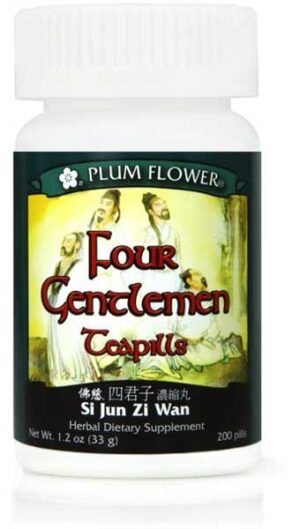 Plum Flower – Four Gentlemen (Si Jun Zi Wan)
Starting at $22.73
Add to CartSelect options
This product has multiple variants. The options may be chosen on the product page
Plum Flower – Four Gentlemen (Si Jun Zi Wan)
Starting at $22.73
Add to CartSelect options
This product has multiple variants. The options may be chosen on the product page
Four Gentlemen (Si Jun Zi Tang/Wan)
This is the classic formula used in the practice of Traditional Chinese Medicine for tonifying Spleen & Lung qi and dispelling accumulated dampness. It is a straight-forward Spleen qi tonic that is considered the base formula for many, many other formulas in Chinese Medicine that deal with digestive issues. It is useful for addressing weak digestion, chronic gastritis, and other digestive disorders characterized by such symptoms as bloating, loose/erratic stools, fatigue, lethargy, and low vitality. In addressing chronic digestive disorders with complex etiologies, it is either:
- used with other formulas that, for example, clear heat-toxins or excess, stagnated phlegm; or
- its four constituent herbs are incorporated into a larger formula that addresses those other complicating factors just mentioned.
-
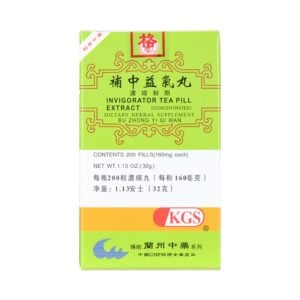 Bu Zhong Yi Qi Wan – Invigorator Teapill Extract – Kingsway (KGS) Brand
Starting at $6.99
Add to CartSelect options
This product has multiple variants. The options may be chosen on the product page
Bu Zhong Yi Qi Wan – Invigorator Teapill Extract – Kingsway (KGS) Brand
Starting at $6.99
Add to CartSelect options
This product has multiple variants. The options may be chosen on the product page
Bu Zhong Yi Qi Wan
This (was) originally formulated and used historically to address post-partum prolapse (a condition attributed in TCM to exhausted reserves of Spleen qi). In modern times, its use has evolved to include cases chronic digestive difficulties w/Spleen qi deficiency (at the root) coupled with complications such as indigestion and abdominal bloating and/or pain. Useful for such complaints as: poor digestion, epigastric distention, esophageal reflux, fatigue/lethargy, loose stools/diarrhea, and flatulence.
This formula also contains herbs that help to “regulate the middle” by addressing the underlying qi dynamics between the Spleen and Stomach (a condition often responsible for indigestion, nausea, and vomiting).
-
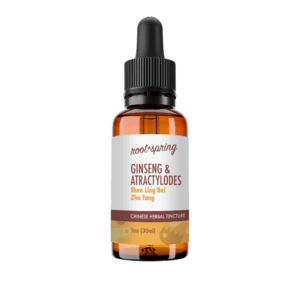 Shen Ling Bai Zhu Tang (Ginseng and Atractylodes) – Liquid Extract (Tincture)
Starting at $14.00
Add to CartSelect options
This product has multiple variants. The options may be chosen on the product page
Shen Ling Bai Zhu Tang (Ginseng and Atractylodes) – Liquid Extract (Tincture)
Starting at $14.00
Add to CartSelect options
This product has multiple variants. The options may be chosen on the product page
Shen Ling Bai Zhu Tang
This is the formula of choice for Spleen qi deficiency (indigestion, bloating, fatigue etc…) with dampness in the intestines producing loose, watery stools/watery diarrhea. Not for use for damp-heat diarrhea (i.e. hot, smelly, explosive etc…)
Liu Jun Zi Tang
This formula uses the Four Gentlemen as its base and adds the herbs Ban xia (pinellia) and Chen pi (citrus peel) in order to harmonize the qi dynamic that is out of balance (leading to nausea & vomiting). It also clears out excess phlegm and mucus from incomplete digestion (which exacerbates symptoms like bloating, distention, and loose stools and makes them tougher to resolve).
Xiang Sha Liu Jun Zi Tang
This formula takes Liu Jun Zi Tang (which tonifies Spleen qi, harmonizes the middle, and clears out excess phlegm and mucus from incomplete digestion) adds two herbs that further help to stop nausea and vomiting.
Xiang Sha Yang Wei Wan
This formula is for chronic digestive complaints (such as poor appetite and abdominal distention) due to weakened digestion and food stagnation. Symptoms indicating this formula include: poor digestion, abdominal bloating & distention, borborygmus (stomach gurgles), nausea, or loose, erratic stools.
This formula concentrates on resolving the stagnation of qi and phlegm and harmonizing the middle (rather than tonifying Spleen qi like many of the other formulas being discussed in this article).
Calm Stomach (Ping Wei Wan)
This formula tonifies Spleen qi while also removing dampness from the middle; a good formula for chronic digestive complaints characterized abdominal bloating and a general feeling of heaviness, whether actual physical sensations of heaviness in the limbs and body or a mental/emotional sluggishness or lassitude that will look different depending on temperament.
The Plum Flower version of this formula also has two herbs with downward actions—Chen pi (citrus peel) and Hou po (magnolia bark). These two herbs combine to redirect Stomach qi down when it is “rebellious” (i.e. moving upwards and causing nausea and/or vomiting). Sheng jiang (fresh ginger) is also in their version of the formula, warming the middle, drying dampness, and helping settle the stomach.
Mu Xiang Shun Qi Wan
This formula addresses chronic digestive complaints due to Spleen yang deficiency* with the accumulation of dampness in the middle. Symptoms that indicate the appropriate use of this formula include indigestion, abdominal distention, poor appetite, borborygmus (stomach gurgling), loose stools (watery), and sensitivity to cold and/or raw food (i.e. cold/raw food triggers or exacerbates the other symptoms).
* In this context, think of Spleen Yang deficiency as severe, chronic Spleen qi deficiency where the Spleen actually needs to be warmed up to function properly.
** Clinician’s note: This formula harmonizes both the Liver-Spleen qi dynamic (Chai hu & Mu xiang) as well as the Stomach-Spleen qi dynamic (Chen pi, Hou po, Qing pi)
Jian Pi Wan
This formula is for use with chronic deficiency of Spleen qi marked by accumulated bits of food matter. Mai ya (sprouted barley) and Shan zha (Chinese hawthorn berry) remove the food matter from the digestive tract and the other 4 herbs tonify Spleen qi and dry out the dampness that almost always accompanies food stagnation.
Bao He Wan
Bao He Wan can be used for either acute or chronic food stagnation. It does not actually tonify Spleen qi, but is a tremendous help if your digestive problems involve accumulated bits of food matter… it can help prepare the way for other formulas that do tonify the Spleen to work much better.
Zi Sheng Wan
This formula is for chronic digestive complaints marked by the accumulation of food matter (i.e. food stagnation) and the accumulation of excess phlegm. Its use is indicated when there is abdominal bloating, borborygmus (stomach gurgling), poor appetite, nausea (especially right after eating), and loose/erratic stools. This formula works like peeling the layers of an onion—it removes the food stagnation, which then allows the body to remove the excess phlegm from years of poor digestion. It also tonifies Spleen qi to help rebuild the digestive system.
Share This
Table of Contents
- Functions of Spleen qi
- Causes of Spleen qi deficiency include:
- Formulas for Chronic Digestive Difficulties
About the Author
Blog Categories
- Adaptogen Articles (8)
- Brain Health Articles (9)
- Chinese Medicine Basics Articles (13)
- Chinese Medicine for Pain Articles (15)
- Chinese Medicine for Pets Articles (3)
- Chinese Medicine for Skin Conditions Articles (6)
- Chinese Medicine Formula Articles (6)
- Chinese Medicine Sleep Articles (4)
- Conditions & Concerns Articles (24)
- Digestive Issues (5)
- Eating for the Seasons (2)
- Health & Lifestyle Articles (17)
- Heart Health Articles (4)
- In the News (1)
- Medicinal Mushrooms Articles (7)
- Men's Health Articles (8)
- Scholarships (5)
- Uncategorized Articles (9)
- Weight Loss, Diet & Obesity Articles (5)
- Women's Health Articles (10)
Articles Related To Spleen and Spleen (Chi)Qi in Chinese Medicine
-
Are you wondering which form of a Chinese herbal formula is right for you? Let’s explore the various types of Chinese herbal medicine to help you decide. Those new to Chinese herbal medicine often ask why there are so many different types of preparations, like pills, tablets, tinctures, and decoctions. What’s the difference? And which…
-
How to Effectively Use Teapills for Your Health Teapills, a staple in traditional Chinese medicine (TCM), offer a simple way to incorporate powerful herbal remedies into your wellness routine. These tiny, round, herbal capsules are pre-prepared, easy to take, and packed with centuries-old wisdom. If you’re looking to benefit from the healing power of TCM,…
-
How Chinese Medicine treats dysfunction, disease, health and wellbeing is complementary to Western Medicine Even at a glance, Chinese Medicine is quite different from Western Medicine. Earthy herbs are favored over laboratory compounds, mind and body are considered one, and diet and lifestyle take center stage. Chinese Medicine is an ancient system developed thousands of…
-
In Traditional Chinese Medicine, each season is more than just a change in weather; it’s an opportunity to align our bodies and live in tune with nature. With late summer – the “fifth season” of TCM – upon us, now is the perfect time to rethink what we put on our plates and eat in…
-
If you have read our blogs or visited an acupuncturist, you may have heard the term “dampness.” But what is dampness in Chinese Medicine, and what does it mean for your health? Dampness may sound like a strange concept, but it’s pretty simple. Read on to learn what dampness really is and how you can…


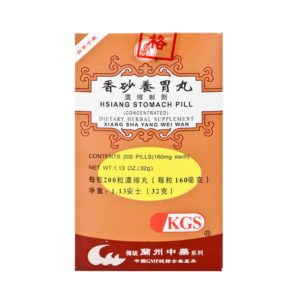 Xiang Sha Yang Wei Wan – Hsiang Stomach Teapill – Kingsway (KGS) Brand
Xiang Sha Yang Wei Wan – Hsiang Stomach Teapill – Kingsway (KGS) Brand
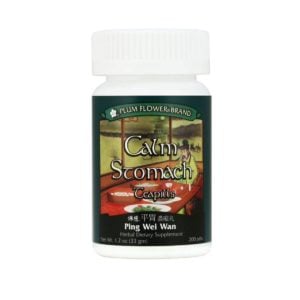 Plum Flower – Calm Stomach (Ping Wei Wan)
Plum Flower – Calm Stomach (Ping Wei Wan)
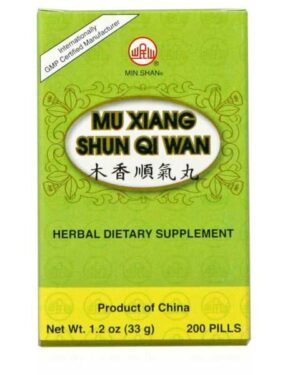 Min Shan – Mu Xiang Shun Qi Wan
Min Shan – Mu Xiang Shun Qi Wan
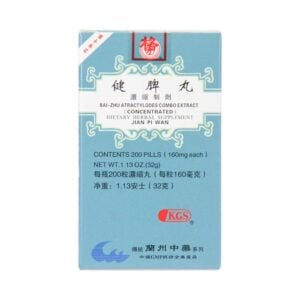 Jian Pi Wan – Bai Zhu Atractylodes Combo Extract – Kingsway (KGS) Brand
Jian Pi Wan – Bai Zhu Atractylodes Combo Extract – Kingsway (KGS) Brand
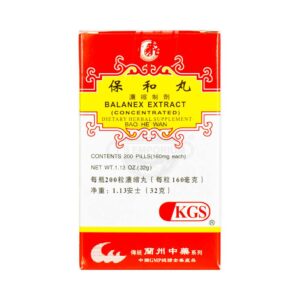 Bao He Wan – Balanex Extract – Kingsway (KGS) Brand
Bao He Wan – Balanex Extract – Kingsway (KGS) Brand
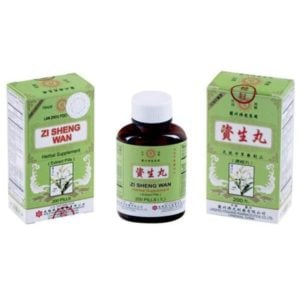 Solstice Medicines (Ci Brand) – Zi Sheng Wan
Solstice Medicines (Ci Brand) – Zi Sheng Wan